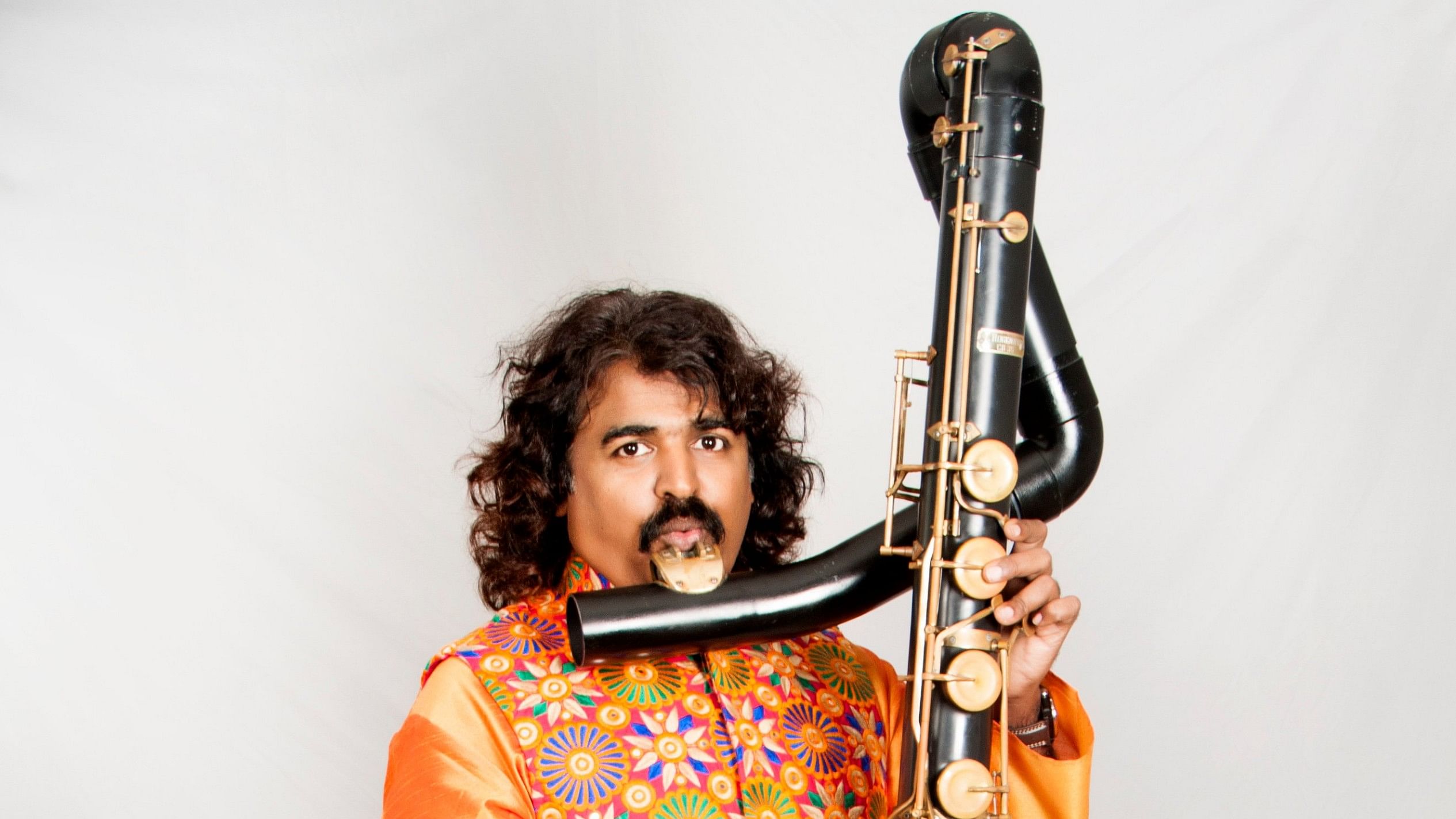
Pravin Godkhindi
Credit: Special Arrangement
As musician Pravin Godkhindi completes 25 years as a composer, his accomplishments and awards filling several pages, what comes to mind is that he’s not just a brilliant flautist but also a multi-talented persona who can sing, act, and play the tabla as well as the harmonium...the list goes on. And that’s not all. He also wrote a novel in Kannada during Covid and it has been translated into English recently with the title 'Prahar: The Singing Clock'.
Godkhindi has an enviable collection of wind instruments, which he has sourced from all over the world. One of these is the eight-foot-tall contrabass flute, which he plays eloquently. “The contrabass flute is used in Western classical music ensembles as a bass flute. I have a bamboo saxophone, an ocarina, and bagpipes — I have modified these so that I can play them like a shehnai or a sundri. I created the U-shaped Mandra bansuri during Covid. I also created the Flutar — a combination of the flute and guitar for my fusion music. I love creating all these wind instruments.”
But that’s what you would expect from a musician from Dharwad — after all, it's home to so many legends of Hindustani music. “With all humility, I carry the responsibility on my shoulders of continuing the Dharwad tradition. I have seen great maestros perform live and I have had the good fortune of visiting them. Compared to what these maestros have achieved in their mastery of ragas, I still have a long way to go.”
A child prodigy, Pravin Godkhindi trained with his father, Pt Venkatesh Godkhindi, vocalist and flautist, and then with Mridangam Vidwan Anoor Anantha Krishna Sharma. “I was immersed in classical music 24/7. I never had a rigorous timetable as far as riyaz was concerned — music was more like a hobby for me — I used to hang around in the music classroom and then go back to playing cricket or doing my homework.”
However, by his late teens, he had got into rigorous training with his father, “I started enjoying it and stuck to a timetable of two hours of riyaz in the morning, and in the evening, I would practice for 5-6 hours.” And he did all that while studying to be an electrical and electronics engineer. “I did my engineering because my father wanted me to have a degree before I took up music as a career. It opened my mind to problem-solving techniques and people management. It has helped in my experimentations with technology in my recording studio. During live performances, I can tell the sound engineer exactly what I want on stage.”
As much as Godkhindi uses technology in creating his music, he's wary about the indiscriminate use of Artificial intelligence (AI), including it being used to morph great artistes’ works. “I always believed technology should be used to add to the quality of music, it should not overpower the human brain. I see it as a great advantage to learners to borrow the ideas that AI gives. The dependency of music creators on AI will have a drastic effect on creativity. Technology should be listening to you, not the other way around. Morphing somebody’s voice through AI is not acceptable to me.”
Godkhindi has several memorable moments from his concerts all over the world, but the one he cherishes most is when he was opening for Ustad Zakir Hussain at Ambedkar Bhavan, Bengaluru. “I suddenly looked up and saw Ustadji standing in the wings listening to me. I was so perplexed and distracted. I thought I should get up and touch his feet. He signalled to me to continue. The person I looked up to all my life was standing on the sidelines and listening to me! Later on, he said that my playing was wonderful and that he had enjoyed it — I will cherish that for a long, long time.”